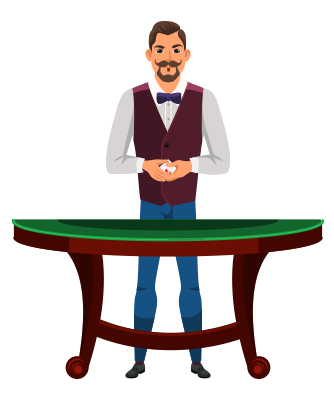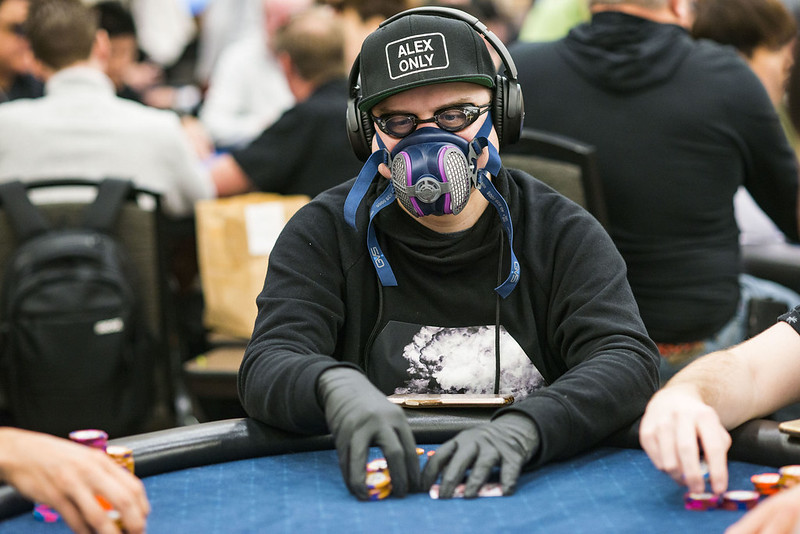Poker School Bay Area
Poker is a thinking person’s game.Given that the brainy and strategically savvy among us usually prove to be the most successful on the felt, it should come as no surprise that many of them are moving from the best schools in the world straight to the elite levels of high-stakes poker.Here's our look at the five schools responsible for pumping out the most professional poker players.In many cases the pros-to-be didn’t make it all the way to graduation day but it’s tough to blame them. Most of us would trade a mortarboard for a million-dollar score seven days a week.
Poker schools in bay area? Anyone know where i can go in the bay area to learn to become a poker dealer. I already know how to deal but I think i need a certificate from a school before I could get hired at my local card room or casino. Our Bay Area Poker Meetup actually meets and plays poker.weekly! It’s a very active group, so if you actually want to meet people and play poker, you found the only weekly poker meetup in the Bay Area. Looking for friendly, semi-professionally run home poker games in the Bay Area?
The Best Universities and Colleges for Poker Players
1. University of Waterloo, Canada
They don’t call Waterloo University the Poker Factory for nothing. This Canadian institution has produced what is arguably the biggest group of world-class players ever to come out of a post-secondary school.
So many successful players are from Waterloo, in fact, an article was written about it in one of Canada’s national newspapers.
Mike 'Timex' McDonald, who won an EPT major for over $1 million, happened to play his first dorm-room game at Waterloo with none other than Steve Paul-Ambrose, former million-dollar winner of the PokerStars Caribbean Adventure.
Xuan Liu, Glen Chorny, Scott Montgomery, Matt 'Ch0ppy' Kay, Mike 'SirWatts' Watson and Nenad Medic all came from Waterloo as well and they’ve all had scores of well over a million dollars.
They take math seriously there. So much so that they were the first school in North America to create an entirely separate faculty for it.
- 2009-2010 Tuition and Fees: Around $8,000
- Bonus Points: It’s really cold in Canada in the winter. You know where it’s not cold? In your room in front of 10 online poker tables.
2. UC Berkeley, USA
With local card rooms like Bay 101 and Lucky Chances and some of the best publicly-educated students in the country, UC Berkeley has a thriving poker culture.
Home games are common among sports teams and fraternities, and there's even a course in poker and blackjack.
Games are organized through word of mouth and social media and are usually in the neighborhood of $1/$2 to $2/$5 for cash and $20-$200 for tournaments.
A long list of successful poker pros cut their teeth during their time there including Joe Sebok, Prahlad Friedman, Bill Edler, Bill Chen, Ali Nejad and Lauren Kling.
Online poker must be a big thing at Berkeley seeing as how the school felt the need to create something called the Online Poker Addiction Forum. They use the word “Forum” pretty loosely considering the site consists of a series of five pages about the scourge of internet poker, and not a single place to discuss the issue.
Along the way it mentions that a walk through the Berkeley campus will reveal hordes of seemingly disciplined students hunched over their computers, not studying but rather trading bets and raises at their favorite online poker rooms.
UC Berkeley, you’re all right.
- 2009-2010 Tuition and Fees: $12,000 (In-State Resident)
- Bonus Points:Click here to see another kind of poker self-expression done at UC Berkeley.
3. Harvard University, USA
Poker School Bay Area Location
The words Harvard and poker have been spending a lot of time together lately and a big part of the reason why is Charles Nesson and his organization, the Global Poker Strategic Thinking Society.
Promoting the idea of using poker as a platform to teach strategic thinking, Nesson even appeared on The Colbert Report to spread the good word about the game we love.
Alumni of Harvard who number among the ranks of pro players include Andy Bloch and Richard Brodie. Full Tilt Pro Brandon Adams is also an economics instructor at Harvard.
- 2009-2010 Tuition and Fees: $33,696
- Bonus Points: If you can afford to go to Harvard you can probably afford to lose some money learning to be a good poker player.
4. Yale University, USA
Poker’s big at Yale. Whether it’s the proximity to Foxwoods Casino or the generally brainy student population, Yale pumps out gifted poker players.
Yale has a chapter of the Poker Strategic Thinking Society just like Harvard and the two schools have even created an annual tournament, carrying their long-standing rivalry over to the felt.
Alex Jacob went to Yale and he took down over $650k all the way back in 2006. Matt Matros has three World Series of Poker bracelets and has earned over $2.3 million in poker tournaments since he studied there.
Vanessa Selbst told us it was her introduction to the biggest cash game at Yale that was the difference in her making the leap to being a pro.
She’s already racked up more than $5.4 million in tournament earnings, including two WSOP bracelets and an NAPT title!

- 2009-2010 Tuition and Fees: $36,500
- Bonus Points: Living that close to Foxwoods and not playing poker just doesn’t make sense.
5. Trinity College Dublin, Ireland
Even Irish post-secondary institutions serve as breeding grounds for the next generation of poker pros.
Legend has it that it was with an organized group of rounders called the Junior Common Room Poker Club at Trinity College that Andy Black began taking the game seriously.
Other members of the group include Donnacha O’Dea and Padraig Parkinson.

- 2009-2010 Tuition and Fees: €6,000 - €10,000 depending on faculty.
- Bonus Points: It’s easier to win money from people who have been drinking. Cha-ching!

Help students and families
most impacted by
the coronavirus crisis.
We surround students with a community of support
empowering them to stay in school and achieve in life.
Our employees do whatever it takes to help
students stay in school and achieve in life.
Communities In Schools employees do whatever it takes to help students stay in school and achieve in life.
Tutoring is made available to students on a one-on-one basis or in group settings. Students are also given incentives to excel academically.
CIS case managers work regularly with students on any issue of concern. Referrals to agencies are made for extensive counseling to the students and their families.
Staff persons offer pre-employment education to the students. Guest speakers present career opportunities in CIS group settings.
Parents are encouraged to be an intricate part of their child’s development, through parenting classes, home visits and various activities.
Poker Dealer School Bay Area
The CIS - Bay Area program is based on an evidence-based model of program service delivery.